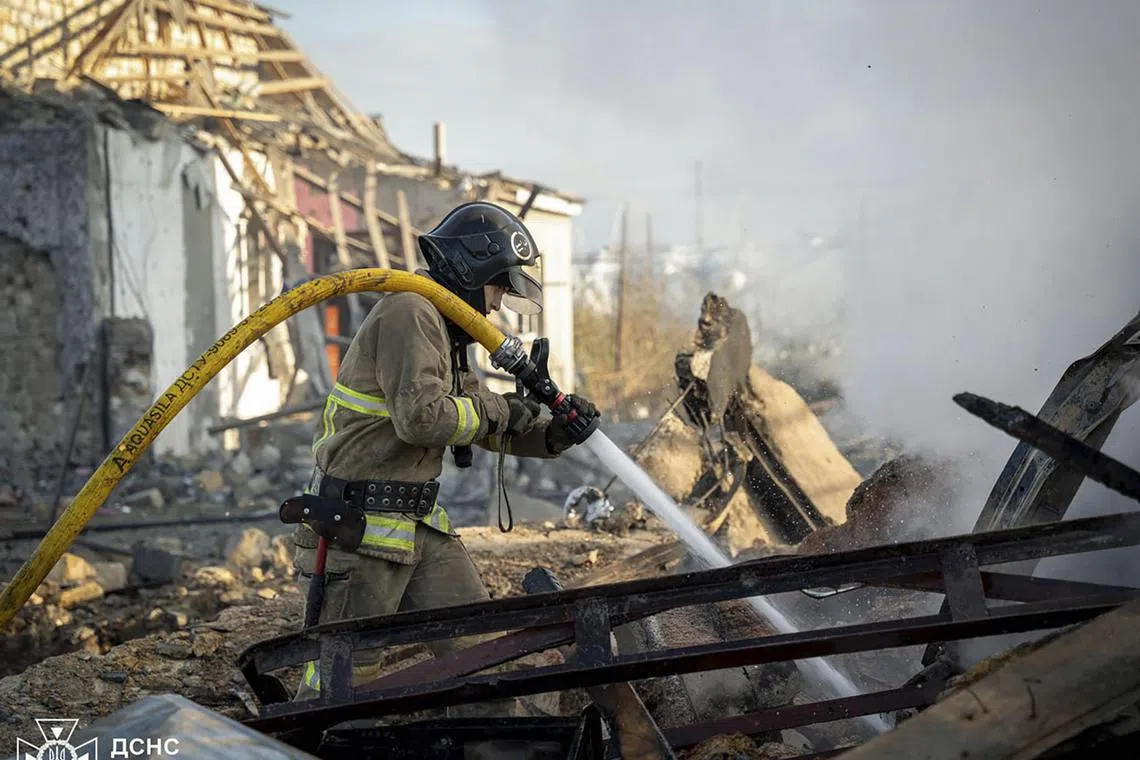Russian air strikes shake fragile G-20 consensus ahead of summit, say 3 diplomats
Sign up now: Get ST's newsletters delivered to your inbox

Ukrainian rescuers working at the site of an air strike by Russia in Odesa, on Nov 17.
PHOTO: EPA-EFE
RIO DE JANEIRO - A Russian air strike on Ukraine on Nov 17 shook a fragile consensus among the Group of 20 (G-20) major economies drafting their joint statement at an annual leaders summit in Rio de Janeiro, three diplomats familiar with the talks told Reuters.
European diplomats are now pushing to revisit previously agreed language on the topic of global conflicts after Russia unleashed its largest air strike on Ukraine in almost three months
The escalating conflict could upset a hard-fought consensus that G-20 negotiators reached around 5am on Nov 17, after an overnight push to ready the joint statement for final review by leaders arriving in Rio.
That preliminary consensus after six days of negotiations included streamlined language about global conflicts including the war in Ukraine, focusing on the need to negotiate peace rather than criticism of any participants.
However, sources said even that “simpler” consensus may now be up for reconsideration, following the Russian air strike and the prospect of further escalation.
United Nations Secretary-General Antonio Guterres told a G-20 news conference in Rio that he continued to support efforts for a “just peace” in Ukraine.
“Our position has been very clear in relation to... avoiding a permanent escalation in the war in Ukraine,” he said.
French President Emmanuel Macron told journalists in Buenos Aires that his focus is backing a Ukrainian response
“With what is happening today, we must first equip and allow Ukraine to resist. This is the key to the coming days and the upcoming weeks,” Mr Macron said before embarking for Brazil.
“We will stand by Ukraine for as long as it takes,” said Ms Ursula von der Leyen, president of the European Commission, in a Globo TV interview from Rio.
Until the air strike on Nov 17, the toughest element of the talks in Rio had been shared language on financing to mitigate global warming, as differences at UN climate talks in Azerbaijan spilled over to the G-20 summit in Brazil.
Wealthy nations, especially in Europe, have been pushing for more countries, such as China and major Middle Eastern oil producers, to make obligatory contributions to climate finance targets.
For the G-20 leaders’ joint statement, however, Brazil and other developing nations resisted that pressure, sources said.
Two diplomats said the negotiators agreed early on Nov 17 to a text mentioning developing nations’ voluntary contributions to climate finance, stopping short of calling them obligations. REUTERS


